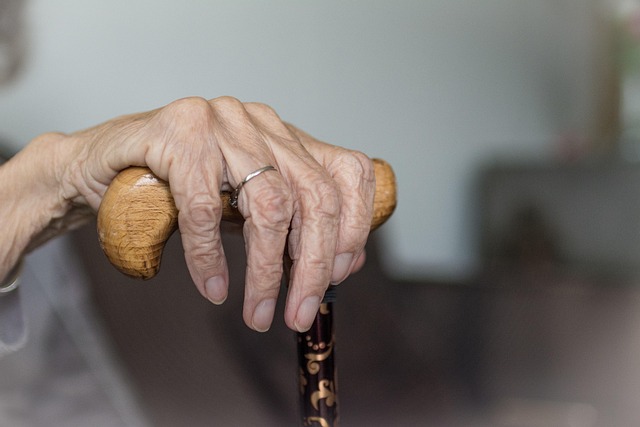Alzheimer's Disease is a progressive disorder affecting the elderly, causing memory loss and cognitive decline. Elderly Companion Services provide vital support, offering personalized care, companionship, and assistance with daily living. These services enhance quality of life by combating loneliness, fostering interactions, and maintaining independence for individuals with Alzheimer's, while transforming home environments into safe, comforting spaces.
“Alzheimer’s care demands a unique approach that prioritizes compassion and understanding. This article explores the multifaceted aspects of supporting elderly individuals affected by this debilitating disease. We delve into the profound impact of Alzheimer’s, highlighting the critical role of Elderly Companion Services in delivering compassionate care. Additionally, it offers practical strategies for creating a home environment that fosters comfort and dignity. By combining expert care with empathy, we can enhance the quality of life for those navigating this challenging journey.”
- Understanding Alzheimer's Disease and Its Impact on Elderly Individuals
- The Role of Elderly Companion Services in Providing Compassionate Care
- Strategies for Creating a Supportive Environment at Home for Those with Alzheimer's
Understanding Alzheimer's Disease and Its Impact on Elderly Individuals

Alzheimer’s Disease is a progressive neurodegenerative disorder that primarily affects elderly individuals, impacting their memory, thinking, and behavior. As the condition worsens, it can lead to severe cognitive decline, making daily tasks increasingly challenging for those diagnosed. The disease typically progresses through stages, starting with mild forgetfulness and advancing to more severe symptoms like disorientation, difficulty speaking, and even loss of basic physical abilities.
The impact on elderly individuals goes beyond intellectual capabilities; it also influences their emotional well-being and social interactions. Many seniors with Alzheimer’s experience confusion, anxiety, and agitation, which can make them more reliant on loved ones or professional care. Elderly companion services play a vital role in supporting those with the disease by providing personalized assistance, companionship, and help with daily living activities, ultimately enhancing their quality of life.
The Role of Elderly Companion Services in Providing Compassionate Care

Elderly Companion Services play a vital role in providing compassionate care for individuals with Alzheimer’s disease. These services offer personalized assistance, ensuring that seniors receive support tailored to their unique needs and preferences. Companions can help with daily tasks like grooming, meal preparation, and medication management, allowing individuals with Alzheimer’s to maintain their independence for as long as possible.
Beyond practical assistance, Elderly Companion Services foster a sense of companionship and connection. Companions engage in meaningful conversations, encourage mental stimulation through activities, and provide emotional support. This human interaction helps alleviate feelings of loneliness and isolation often experienced by those with dementia, enhancing their overall well-being.
Strategies for Creating a Supportive Environment at Home for Those with Alzheimer's

Creating a supportive environment at home for those with Alzheimer’s involves simple yet profound adjustments that can significantly enhance their quality of life. Caregivers can transform their homes into safe and comforting spaces by implementing easy strategies. This includes organizing familiar routines, using visual cues like photos or labels to navigate the house, and maintaining a calm, predictable atmosphere. Music, soft lighting, and comfortable furniture can also create a soothing ambiance that reduces anxiety and promotes relaxation.
Elderly companion services play a crucial role in this process by providing trained professionals who understand Alzheimer’s and its impact. These services offer not just assistance with daily tasks but also emotional support and companionship. They can help create structured schedules, facilitate engaging activities tailored to the individual’s interests, and ensure safety within the home environment. By combining these strategies, caregivers can foster a nurturing setting that respects the unique needs and dignity of those living with Alzheimer’s.
Alzheimer’s Disease poses significant challenges for elderly individuals, but with compassionate care, we can greatly enhance their quality of life. By understanding the disease and its impacts, we can leverage elderly companion services to provide tailored support. Implementing strategies to create a supportive home environment further solidifies this care, ensuring those affected receive the respect and dignity they deserve. Elderly companion services play a pivotal role in navigating this complex landscape, offering not just assistance but also companionship and emotional support.














